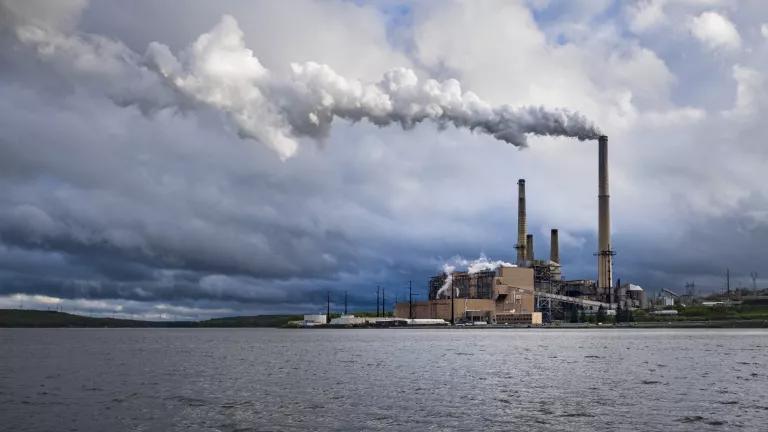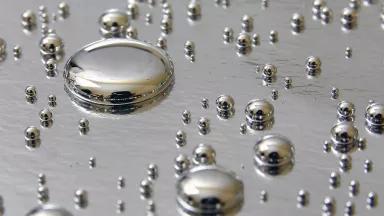Reduce Mercury Pollution
NRDC is working with global coalitions and innovative programs to reduce the use and trade of mercury and slash emissions of the toxic metal into our air and water.

Panner mining with mercury in Tanzania
Susan Egan Keane
Mercury pollution is released from mining, coal combustion, power plants, and other industrial sources and is traded globally for use in various products and processes. It can travel halfway around the world before it enters waterways, tainting fish that may be marketed to consumers across the globe. For these reasons, toxic mercury now endangers people on every continent. Tens of thousands of American newborns are estimated to be at risk of impaired motor skills and learning disabilities because their mothers ate fish laden with mercury.
As an active coalition member of the Zero Mercury Working Group, we are working with governments and the United Nations to aggressively implement the Minamata Convention on Mercury, a global treaty that aims to reduce the trade, use, and emissions of toxic mercury worldwide. NRDC has also coauthored an essential manual that helps leaders understand the treaty and the steps their countries can take to begin reducing mercury’s toll.
In China, NRDC is partnering with experts and local NGOs to promote more effective mercury air emissions controls, quantify and reduce mercury production from mercury mining and other sources, and reduce the use of mercury in products and industrial processes.
We’ve collaborated with organizations and governments around the world to develop national action plans for small-scale gold mining and developed training and guidance materials to assist government compliance with the Minamata Convention's small-scale mining provisions. We’re also helping to execute the planetGOLD program, which supports mercury-free small-scale gold mining, promotes access to finance, and connects these smaller operations with the formal economy.
Related Content

Pope’s Visit Highlights Gold Mining Problems—and Solutions
Developing a National Inventory of Mercury Production and Use: The Time Has Come
The Minamata Convention: What It Means for Artisanal and Small-scale Gold Mining






